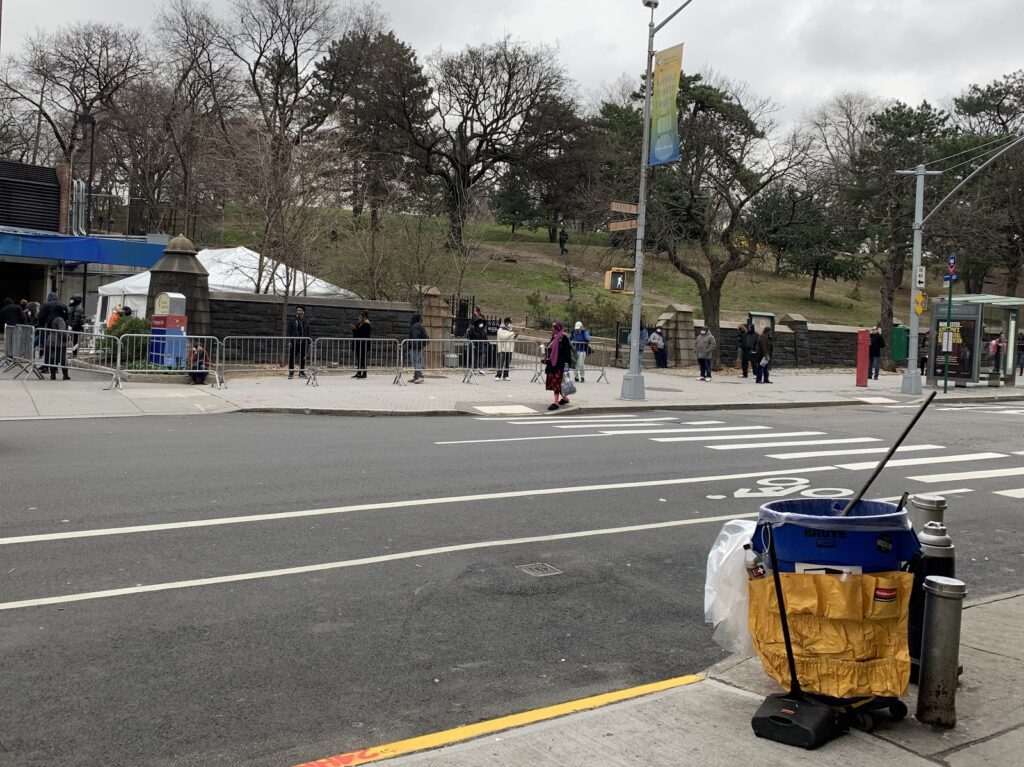Apr
28
2020
Why Organizations Cannot Postpone It Even In Times of Crisis
Written by Gerald Mitchell (Consultant, BMP Organizational Race Equity Assessment)
UPDATE 5/14/2020: We’re interested in hearing examples of what your organization has done to successfully push forward race equity. Take a moment to fill out this short survey so we can share recommendations with our community, other organizations, and the sector at large!
When COVID-19 first brought New York City, the city where I live, to a standstill in March, I couldn’t help but think that the work that we’ve been doing at BMP would also come to a halt. I had been helping BMP continue its commitment to advance racial equity within the nonprofit sector through the development of a tool that helps organizations assess their racial equity practices and get insight into how they can build a culture of racial equity. We were piloting the tool with individuals and organizations, yet, as the situation worsened, people whom I asked to test the tool said they had to prioritize themselves and couldn’t participate any longer. I understood the sentiment – in fact I had similar thoughts myself.
It wasn’t until I took a walk on March 19 in my Brooklyn neighborhood and walked by a line of people that were awaiting testing for COVID-19 that I realized how especially important the work to focus on racial equity was for this current crisis. I counted that almost 90% of the people in line were Black and Brown.

I went home and looked for statistics on racial demographic splits for how COVID-19 was impacting communities, and found nothing. Over a month later, it’s been confirmed that Black people in New York City are twice as likely to die from COVID-19 as white people. Similar disparities, if not worse, are occurring in Chicago, Louisiana, Milwaukee, Massachusetts, and the rest of the nation, even as health officials were not prepared for that reality.
It doesn’t seem far-fetched to say that lives would have been saved if entities that were tasked with responding to COVID-19, from the White House to public health organizations, were more equitable. Organizations that prioritize racial equity likely would have better predicted that Black and Brown communities would be most impacted by COVID-19, even as people were saying that the virus does not discriminate. More equitable organizations would be able to better allocate resources, including money, tests, equipment, and educational materials on how to protect oneself and one’s communities. More equitable organizations would likely understand that these protective measures cannot be uniform because, for example, not everyone has the ability to social distance, or they may be worried about being targeted for wearing a mask. These examples do not even touch upon how more equitable organizations would be better prepared to address the underlying structural and socioeconomic factors – amongst them, economic extraction, pre-existing health conditions and disparities, environmental racism – that are the very reason why the disparities in infection rates and deaths for Black and Brown communities exist in the first place.
Clearly, the need for equitable organizations is long overdue and the importance only ratchets up as the stakes increase. Every organization is being touched by this crisis in some way or another, and as a result, every organization has the opportunity to respond in a way that is more equitable. That includes both internally, in how the organization responds to staff, and externally in achieving its programmatic goals.
For organizations to start or continue to build a race equity culture, the BMP team focuses on the following questions:
- Is the organization itself resilient and open to change?
- How are leaders exhibiting and modeling a commitment to equity?
- Are people able to foster honest conversations and trusting relationships?
- Are marginalized voices included and centered in these conversations?
These are distinct questions, but they are also interrelated. For example, inequitable leadership at the White House and a lack of voices of people of color leads to an insidious form of dishonesty that harms the ability to respond to the crisis overall, and for Black and Brown communities in particular.
In contrast, at the grassroots level, food banks such as White Center in Seattle changed their entire service delivery model when they realized that it was not as responsive to their most vulnerable customers in this most vulnerable moment.
Similarly, essential employees from healthcare to warehouse workers, again disproportionately people of color, have had their voices ignored when raising concerns of safety. This harms not only relationships with their organizations, but individual and collective health as well. In contrast, organizations that foster trusting relationships with staff are able to have honest conversations, which are necessary to understand how to respond during these unprecedented times in order to be more supportive of all staff. For example, many organizations have been thrust into crafting remote working strategies for their staff. This creates newly formed challenges around access, supervision, and support – who has the ability and is trusted to work from home, who is more likely to experience disruption in their personal lives that makes it more difficult to continue “business as usual.” Given organizational leadership is typically disproportionately white, as well as existing biases, these challenges are likely to be responded to more favorably for white staff than staff of color unless they are explicitly acknowledged and understood.
From seemingly small to obviously large decisions, advancing racial equity at organizations has impacts that are glaringly important – in some cases, such as COVID-19, equitable responses are the difference between life and death. While your first instinct may be that you have to deal with the emergency before refocusing on racial equity at your organization, by turning that instinct on its head and focusing on racial equity, you will more effectively deal with the emergency itself. When there is such a clearly inequitable distribution for how people are impacted, as is unfortunately the case in how COVID-19 is devastating Black and Brown communities, racially equitable responses become even more necessary. This is not the first nor will it be the last crisis we face collectively, and as we continue to build equitable organizations, we continue to build resilience to respond to whatever challenges are to come. Regardless of whether you’re starting or continuing your race equity journey, addressing the current situation and preparing for the future calls for this essential work.

